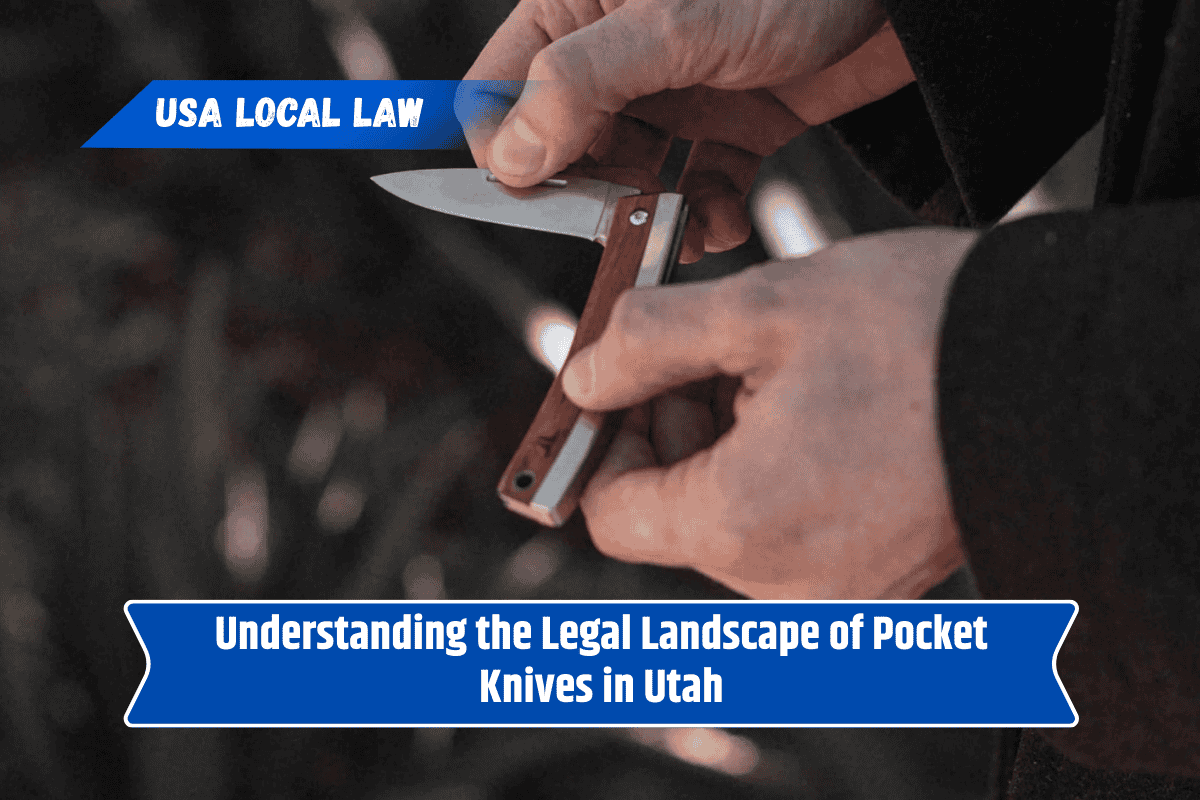Pocket knives are widely used in Utah for everything from outdoor activities like camping and hunting to everyday tasks like opening boxes or cutting rope. But even though they’re common, it’s important to know the legal boundaries around carrying and using pocket knives in the state.
Whether you’re a knife enthusiast, a first-time buyer, or just want to stay on the safe side of the law, this guide will help you understand Utah’s knife laws in simple, clear language.
Are Pocket Knives Legal in Utah?
Yes, pocket knives are legal to own and carry in Utah. In fact, Utah is known for having some of the most relaxed knife laws in the United States. You can legally carry most types of knives, including folding knives and multi-tools, whether you’re carrying them openly or concealed.
There are no blade length restrictions under state law for pocket knives. However, how and where you carry your knife still matters in some situations.
Legal Types of Pocket Knives in Utah
In Utah, you can legally own and carry the following types of pocket knives:
Folding knives and multi-tools
Assisted-opening knives
Automatic or switchblade knives
Butterfly knives (balisongs)
Fixed-blade knives, although not technically “pocket” knives, are also legal
You don’t need a special permit to carry any of these knives, and you can carry them openly or concealed.
Where Can You Carry a Pocket Knife in Utah?
While pocket knives are mostly legal, there are still certain places where carrying a knife could be restricted, especially if it’s viewed as a weapon. These areas include:
Schools and school grounds – Knives are generally banned in public and private K-12 schools, regardless of blade length.
Courthouses and government buildings – Knives are not allowed in most secured public buildings.
Airports – TSA rules prohibit carrying pocket knives past security checkpoints, even in carry-on luggage.
Private property or businesses – Some stores, stadiums, or venues may have their own rules banning knives.
Violating these rules can result in confiscation, fines, or even criminal charges depending on the situation.
When Is Carrying a Knife Considered a Crime?
Even though knives are legal in Utah, how you use or display them can still lead to legal trouble. You can be charged with a crime if:
You use a knife in a threatening or violent manner
You carry a knife with the intent to harm someone
You bring a knife into a restricted area, like a school or courthouse
You violate federal knife laws on airplanes or in federal buildings
In such cases, you could face charges ranging from disorderly conduct to aggravated assault, depending on the situation.
Minors and Pocket Knife Laws
There is no specific statewide ban on minors carrying pocket knives in Utah, but:
Schools have strict zero-tolerance policies
Parents can still be held responsible if a minor misuses a knife
Law enforcement may treat a knife carried by a minor as a weapon, especially in suspicious situations
So, while it’s technically legal, minors should avoid carrying knives unless supervised or using them for safe, lawful purposes like scouting or camping.
Self-Defense and Knife Use in Utah
Utah is a “stand your ground” state, meaning you have the right to defend yourself if you’re being attacked, even with a weapon like a knife—but only if:
You reasonably believe you or someone else is in danger
You’re not the aggressor
The amount of force you use is proportional to the threat
Just carrying a pocket knife for self-defense is not a crime, but using it improperly can be.
Utah’s knife laws are among the most relaxed in the country, making it legal for most people to carry pocket knives for everyday use or recreation. However, responsible ownership means understanding where and how you can legally carry your knife, and knowing when using it could cross the line into criminal behaviour.
If you’re ever in doubt, it’s always safer to check local laws or speak with a legal expert. Respect the tool, use it wisely, and you’ll stay well within your rights.
